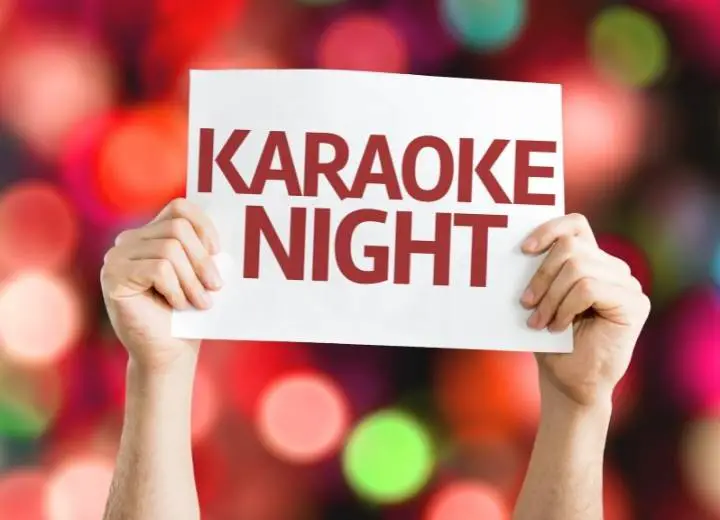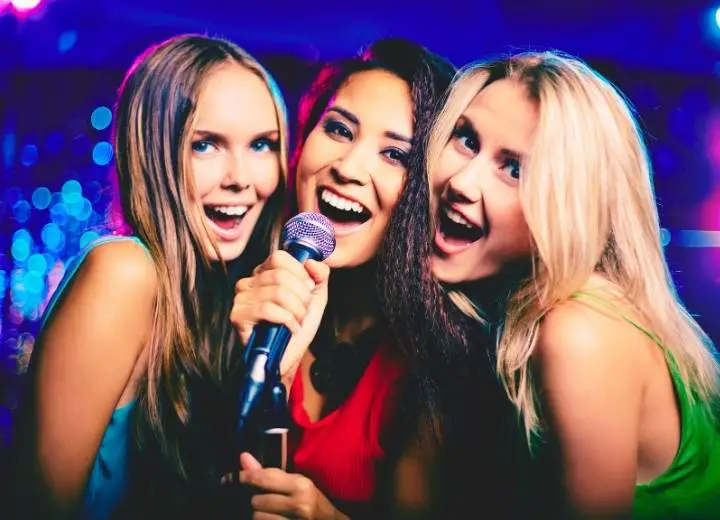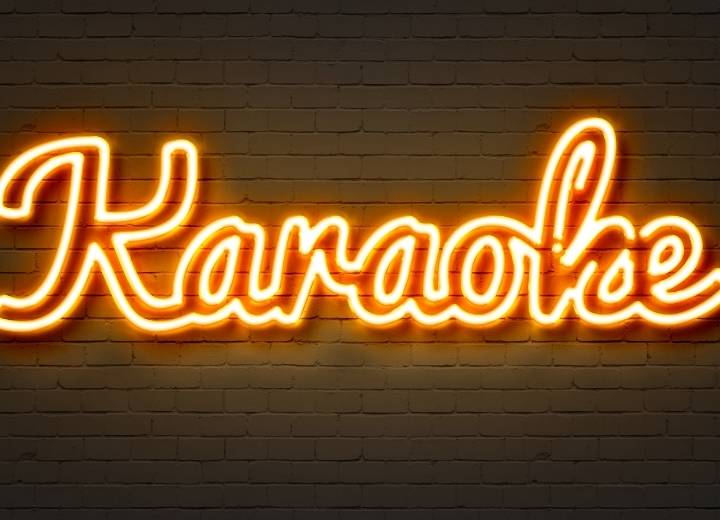
Karaoke originated at a snack bar in Japan, where a performer can’t sing a booked song correctly. Karaoke involves instrumental versions of popular songs with lyrics played in time on a screen so that people can sing along without learning the lyrics.
Are karaoke songs copyrighted?
Yes, copyright laws do cover karaoke both in making karaoke discs and the performance in a bar. Essentially, all well-known songs are copyrighted and must not legally be played in public without the songwriter’s permission.
Karaoke overview
Nowadays, the interaction between copyright law and karaoke music acquired full attention from the US federal courts. They decided to investigate if the rights to many songs available on singing machines and in karaoke boxes were legally procured.
Karaoke club owners and karaoke CDs distributors then had to cry out against copyright infringement cases caused by song publishers.

What Does Copyright Law For Karaoke Say?
Copyright is a legal tool that helps artists brand original products, granting the creator ownership over their use.
Restaurants, bars, and nightclubs consider karaoke an inexpensive way of entertaining customers. They let patrons sing along to a record arrangement of popular songs without vocals and gain profit from this activity.
Is karaoke music copyrighted? First, let’s look at the major terms related to karaoke songs in copyright law.
#1. Fair Use
Fair use is the legal doctrine that allows users to make backup recordings and copies for personal use. This term applies to both customers and bar owners.
A common misconception is that no one has the right to use a copy of copyrighted work without proper permission. In fact, people can hold backup copies of protected work as long as the user doesn’t diminish the work’s value. And the scope of this doctrine covers karaoke songs if a license is in place.
However, the adoption of this principle to karaoke songs is still controversial. Film and music companies keep those backup versions of karaoke songs to make money off the proper rights. So they should not fall within the fair use doctrine’s scope.
#2. CDGs and License Fees
In karaoke boxes, the music with lyrics is compressed in a licensed round, compact disc called a CDG. A CDG is usually formed in graphics format.
Karaoke disc distributors sold these CDGs to firms that generate revenues through karaoke. Depending on content and use, CDG license fees can vary.
Basically, the licensing agreement limits how license holders will play, make a copy, and redistribute the karaoke performances. The license fees are then distributed in part to the original artist. Usually, organizations like the American Society of Composers and Publishers will help with this distribution.
#3. Parody
A parody involves imitating and exaggerating another work to create comic effects and amuse users.
According to the US Supreme Court, parody and fair use are on the same side. Courts described parodies as a transformative work, and the same goes for karaoke. It turns its participants into the original artist’s mock version.
By law, it’s not illegal to perform parodies during karaoke. However, issues may arise if copyright owners file charges for infringement.
#4. Synchronization Licensing
If any group or bar wants to use music with a visual image in sync, they must get a synchronization license to broadcast the music. A flat fee is applied for this license.
In 2006, The Eagles, a famous rock band, brought a karaoke device firm to court because they didn’t pay for synchronization licensing fees on their songs.
At first, the CEO claimed that the company didn’t have to pay those fees since its screen and device, which displayed the songs’ lyrics, was not the material applicable to the synchronization license.
However, the 9th US Circuit Court of Appeals rejected the CEO’s claim.
#5. Infringement
Business owners can face infringement fines even when they purchased a lawful license procured for karaoke. If a copyright owner is tricked out of his money, or the karaoke performance devalues the artist’s work or is considered offensive, the creator can sue for infringement.
Are karaoke tracks copyrighted?
Having learned the law, we know the answer is yes. An artist’s right to his products is protected by the top section of the US Constitution. Whose songs are permitted to play, how many songs a box can use, and if the performance is recorded are among the elements of how copyright laws affect karaoke.

Generally, karaoke clubs offer video records of customers’ performance. Nevertheless, if the club owner has not purchased the licenses to use the song, he must not make the recordings for his customers and will have to face an infringement.
What Things Should Karaoke Boxes Owners Keep In Mind?
So karaoke service providers have to keep some important things in mind to avoid prohibitive charges.
#1. Respect The Copyright
Karaoke bars and clubs used to earn profit over ‘free’ songs, taking the creator’s work for granted. Then how can musicians manage to live?
Bands and artists brand their music to protect themselves from creativity,and original work steals. Thanks to the copyright, many songwriters acquired a great reputation and fortune, which they always deserve.
#2. Pay For The Music
Club owners can’t simply buy a karaoke machine, set up the system, then make money over others’ brains. Businesses using karaoke to produce income must buy CDGs and pay the license fees.
Once they purchase the disc, they’re allowed to play, redistribute, and hold backup copies of karaoke performances. Most importantly, the profit from the licensing fees should be distributed in part to the original creators.
Conclusion
A karaoke night with favorite songs and best friends is the best cure for a stressful day. Would-be singers eagerly looking forward to singing at the mic may experience disappointment if the club owner isn’t well-informed of the copyright law for karaoke songs.
Music firms and karaoke box possessors should be aware of the law’s rules. Otherwise, you are going for a painful infringement.
Thank you for reading!
